Reflections on a Teaching Career #2
Teaching Hitchcock, Woody Allen, and Oscar-winning films
Reflections on a Teaching Career #2
My First Courses
While I was in graduate school at the University of Chicago I was commuting in from the suburbs for classes and then heading back out to the burbs to work part-time as an Academic Adviser at the College of Du Page. Frank was teaching Speech there full-time and had a hugely successful career as a forensics coach and theater director. He also taught a course called Broadway Bound, which involved a few class sessions and then a long weekend trip to New York City to see Broadway shows. Initially I tagged along as his “assistant” which allowed me the benefit of seeing the shows and taking in the Big Apple. For close to twenty years, I’d teach the course with him. It became an annual event with most of the students being fellow teachers and friends who would continue to join us each year.
The Broadway Bound course was housed under the college’s Field and Interdisciplinary Studies Department where faculty could create special topic classes, including many involving trips around the world. Because I was already advising there part-time, I decided to throw my hat in the ring and propose a course on one of my favorite directors: Alfred Hitchcock. It was accepted with a plan to offer the class that summer. As I was finishing up my Master’s program, I began to prepare for the course not knowing if anyone would sign up. As it got closer to the summer the initial numbers of students enrolling were small. So, I managed to convince several friends and my mom(!) to take the course. Before the first day roughly half of the 25 or so students enrolled were people I knew.
With little time catch my breath, the first class session was held just days after I graduated from U of C. I was nervous but with my extensive research on Hitchcock and so many friendly faces in the class, I thought it might go okay. Then I found out that one of the enrolled students was hearing impaired and would require an interpreter to sit in front of the class signing to the student. Great. I’d never taught a real course before and didn’t want to deal with some unknown challenge for the first time. I was asked if I could use subtitled films in class. However, this was in the day before we were using DVDs and all I had were the videos I brought to class from home which didn’t have closed captioning. Because I had learned so much about mis-en-scene and cinematography in the various courses I had taken, I also didn’t want anything to be taken away from the visual experience for my other students. So, the interpreter (and sometimes two) would sign all dialogue from each Hitchcock film. Clearly, their hands were tired by the end of a film screening. After a screening of Rebecca the hearing impaired student would refer to the main character as “Edital” in her reflections on the film. Anyone who had read the famous book from which the film was adapted would know that the character was not given a name. I never did figure out where the name “Edital” came from (is that even a name?) but something was clearly lost in translation from screen to sign language.
My mom, friends Marlee, Sue, Anne and I would have dinner at a local burger joint each week before class. I was always nervous about getting to class too late, so I’d leave early and head to the classroom to make sure the video projector was there and that there weren’t any problems with the sound, picture, etc. Sometimes there were, which would put me in a panic. I didn’t want to appear unprofessional with the equipment but frankly I really didn’t know how to work the stuff! I began realizing that all the time I’d spent studying cinema was not going to prepare me for technical issues or hearing-impaired students. It’s one of the interesting things about teaching at the college level: you don’t have to learn any technical skills, teaching methods, or have a teaching certification. Basically, if you have a Master’s degree in a subject you are off and running. (This has changed a bit since the late 1990s, with often various seminars being offered on topics like online learning and AI, but those were not quite on the horizon at the time.)
The class ended up going very well. It was a complete thrill to dive into Hitchcock’s work, explore his various themes and motifs, and discuss students’ perceptions about the films. I ended up offering the course weeks later for the Fall term. This time the course filled easily, although in keeping with personal connections in class, my cousin Kathy enrolled being a big Hitchcock fan herself.
Clearly, seeing that I might be able to do more courses like this, I then developed a course on the films of Woody Allen. I was always a big fan, watching one film a night to fall asleep to. This was about five years after the initial scandals with his girlfriend Mia Farrow and her daughter Soon-Yi. While a few of his films suffered a bit at the box office during that time, they also received several Oscar nominations for Allen’s screenplays as well as wins for Dianne Wiest (for Bullets Over Broadway) and Mira Sorvino (for Mighty Aphrodite.) As such, he was still being celebrated as a filmmaker, and I never had any concern about the controversies associated with him. The first time I taught the course, it completely filled, and the experience proved quite positive for everyone involved, including my friends Kevin and Cathy who enrolled. In 2000, when Allen came to town for a screening of one of his films at the U of C, I was able to meet him briefly. When I told him I taught a course on his work, his response was, “Really? Are there students in it?” What a moment that was!
Next up, I developed a course on Oscar-winning films, tracing the history of the Academy Awards and exploring several key films from its decades of winners. The first night I attempted to show the very long, and often brutal film, All Quiet on the Western Front (1930.) I had issues with the projector leaving us behind schedule with no time to talk about the film. I generally prepared a lecture to give before each film and then a series of questions for discussion afterwards. Just showing a film seemed to be a waste of class time so I’d try to pick shorter films such as Casablanca and Annie Hall. When I showed the latter in this course, one student said, “I don’t like Woody Allen. He scares me.” This would be an issue that I, surprisingly, didn’t have to deal with much throughout my career but I recognized that not everyone was as taken by Allen’s work as I was at the time. I also showed Platoon which ended up being a fairly difficult experience for an army veteran in the class who we’d now say was a bit “triggered” by the film. However, he talked openly about how he felt without any seemingly lasting negative effects throughout the rest of the term.
I also developed a course on “maverick” film directors, which at the time I deemed Quentin Tarantino, Kevin Smith, David O. Russell, Doug Liman, and Paul Thomas Anderson worthy of study.
Each of these courses were a lot of work to develop but I enjoyed it immensely. I was diving into my favorite films and directors and enjoying the rapport I was developing with the students who enrolled. This seemed to be my destiny.
Next Up: Another college and a broader topic to teach: Humanities.

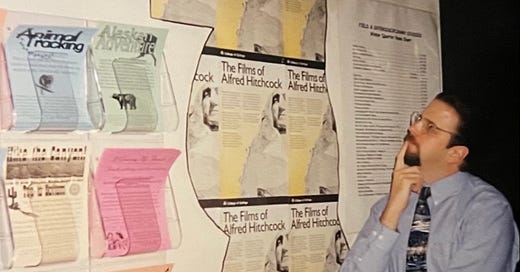


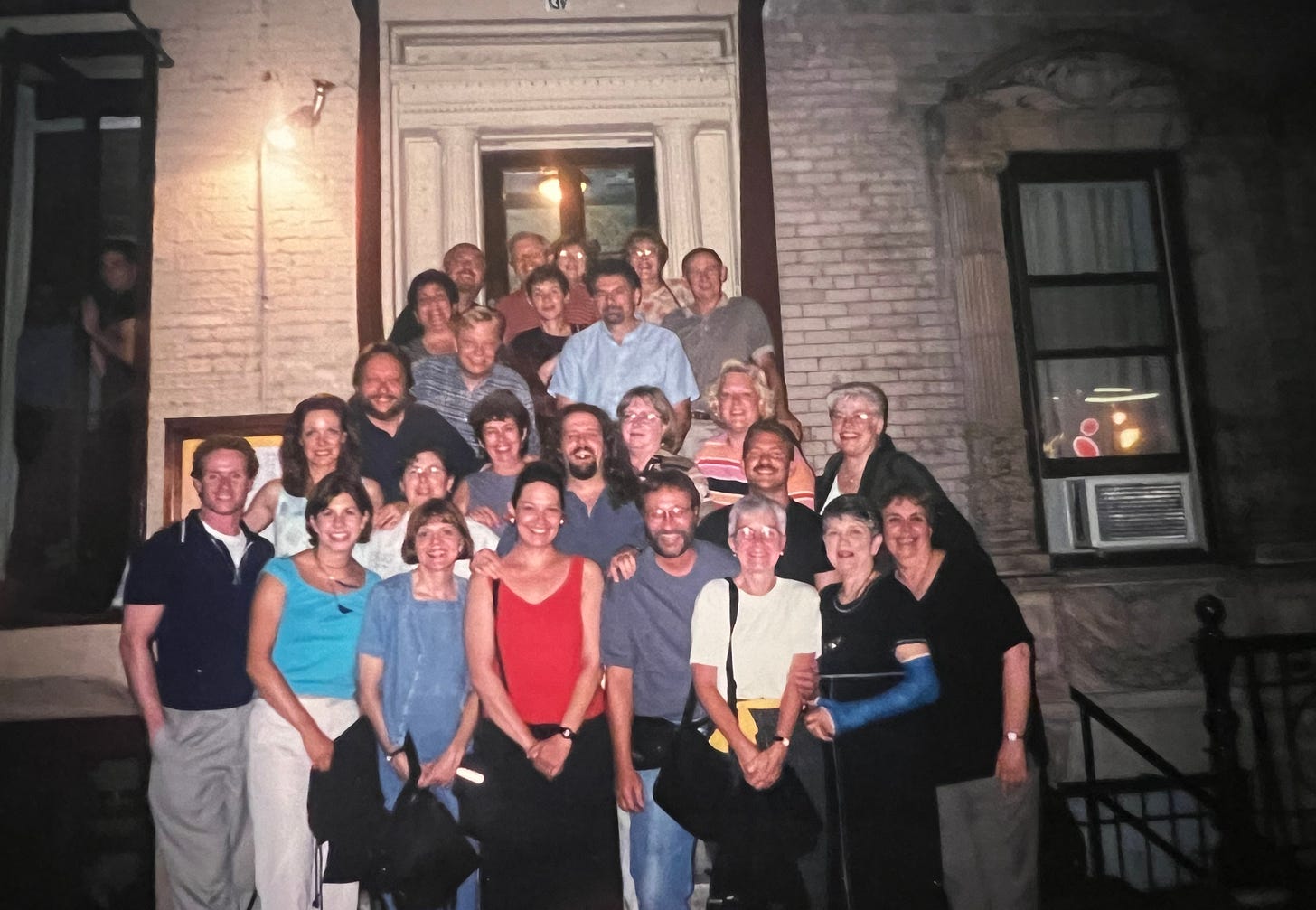


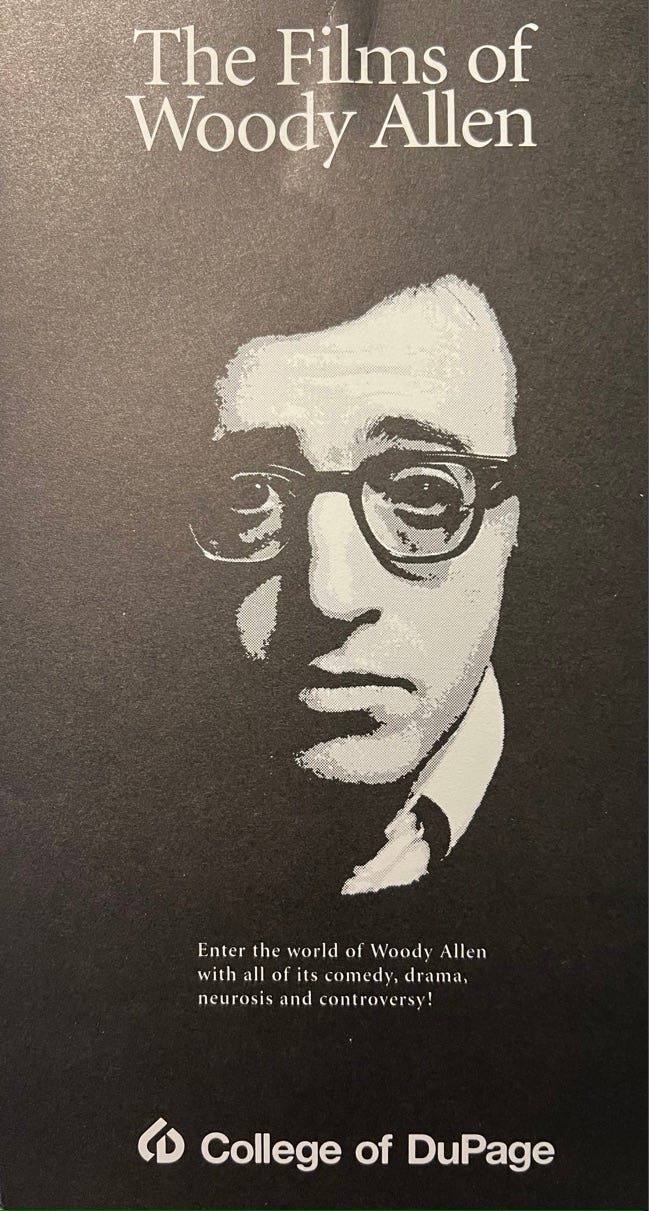
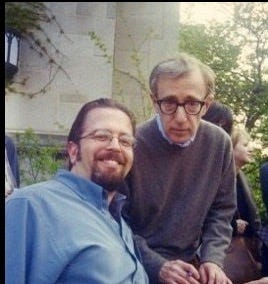
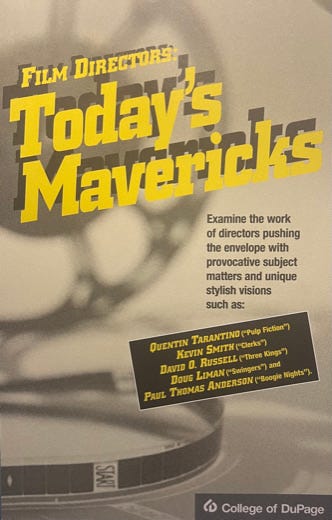

Dan - love this series! Thanks for bringing it forward. Hope you’re well.
Me, too!!Congrats!! https://open.substack.com/pub/johnnogowski/p/nogo-as-teacher-the-kids-talk-back?r=7pf7u&utm_medium=ios